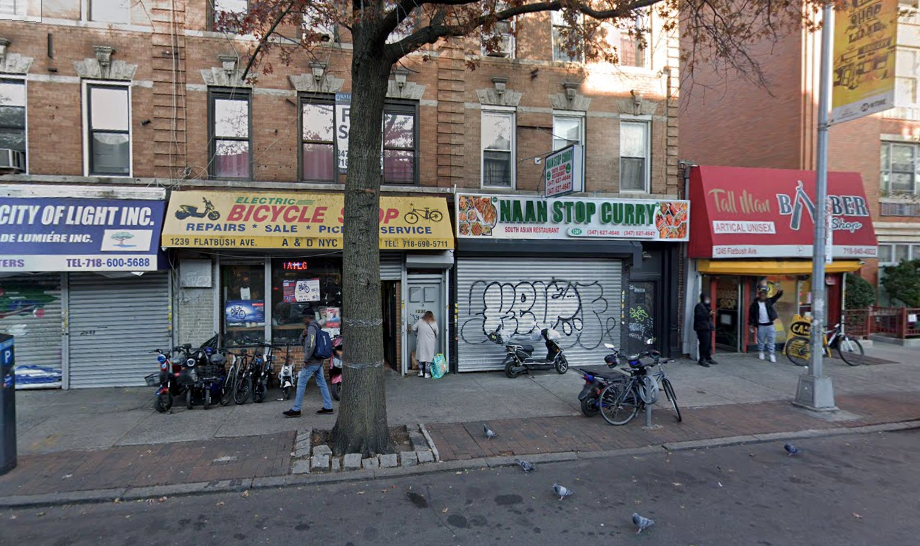New York City Mayor Eric Adams launched the New York City Safe Charging Accelerator program to ensure safe e-bike usage and charging, and to prevent deadly lithium-ion battery fires in New York City.
As a part of this accelerator, the New York City Department of Transportation (DOT) will propose a rule to expedite approvals for property owners to more quickly install e-bike battery swapping and charging cabinets on public sidewalks, removing barriers to their installation and making them accessible and usable for e-bike users, according to a news release.
The DOT will also be launching the nation’s first municipal trade-in pilot program for unsafe e-bikes and other powered mobility devices and their batteries, allowing eligible food delivery workers to replace their unsafe devices with certified, high-quality e-bikes and batteries.
Finally, the Fire Department of the City of New York (FDNY) will launch a $1 million public education and awareness campaign on the dangers of unsafe lithium-ion batteries, following new data showing that 59% of 2023’s lithium-ion battery fires started when those batteries were not charging, the news release said.
“When used correctly, e-bikes are a convenient, low-cost transportation option that reduce congestion and emissions, and tens of thousands of delivery workers rely on them every day,” said Adams. “But too often, those bikes are powered by unsafe, uncertified batteries that at any minute could combust. That is why we are doing everything in our power to put a stop to these deadly fires and make use of safe lithium-ion batteries more affordable."
Illegal and unregulated batteries, which power tens of thousands of micromobility devices in the city, pose significant risks to residents and first responders due to their potential for explosive and deadly fires.
Since 2019, lithium-ion batteries have started 733 fires, killing 29 New Yorkers and injuring 442 more. Notably, in 2023, 133 fires started from lithium-ion batteries that were not charging, compared to 91 that occurred while they were.
Simplifying Safe E-Bike Charger Installation
To address fire safety concerns and promote the safe use of electric micromobility devices, the DOT is proposing a rule to expedite approvals for property owners to install electric micromobility device battery swapping and charging cabinets on public sidewalks, which is currently prohibited. This rule will enable property owners, or commercial tenants with the property owner's consent, to apply for a permit to install a battery swapping and charging cabinet in front of their business on the sidewalk. Each cabinet must comply with specific siting and dimensional requirements and undergo FDNY and DOB review and approval.
To support this effort, the FDNY will hire additional staff to allow for expedited safety inspections and approvals of equipment for use in New York City. Once fully staffed, approval decisions are anticipated to take no more than six weeks, with prioritized approvals for new technologies.
The city will publish clear guidance for building owners on how to improve charging safety in their buildings. The FDNY will also update its website to make it easier for companies that sell lithium-ion battery storage and swapping cabinets to receive FDNY approval.
To provide further guidance on lithium-ion battery policies, the city will convene a working group consisting of representatives from tech companies, real estate stakeholders and municipal experts focused on transportation and fire safety. Within 90 days of convening, that group will issue a set of recommendations on how to update city rules and processes to increase adoption of safe charging cabinets.
A public hearing on the administration’s battery swapping and charging cabinets rule will be held online on August 21 at 10am. Applications for the program will open at the end of 2024.
E-Micromobility Trade-in Program for Food Delivery Workers
Currently, many food delivery workers utilize uncertified e-bikes and heavier electric and gas-powered mopeds, which cannot be registered with the New York state Department of Motor Vehicles due to the lack of Vehicle Identification Numbers. DOT’s e-bike trade-in program — the nation’s first municipal program of its kind — will focus on exchanging unsafe e-bikes and lithium-ion batteries for new devices.
Selected participants will receive a UL-certified e-bike and two compatible, UL-certified batteries in exchange for their unsafe devices and batteries. By swapping these illegal devices for UL-certified e-bikes and batteries, the program will reduce fire and crash risks; help participants comply with local and state laws; and encourage workers to utilize cleaner, greener, forms of e-mobility for deliveries.
The program offers trade-ins of both e-micromobility devices and lithium-ion batteries to help ensure that unsafe batteries and devices are fully removed from city streets and that batteries are compatible with the devices they are powering.
Participants must reside in New York City, be at least 18 years of age, own an eligible, working device and have earned at least $1,500 over the prior year as a food delivery worker to be eligible to participate in the program.
Participants will receive two batteries because many delivery workers report that a full day of work often necessitates the use of two batteries.
A public hearing on the administration’s new trade-in program will be held online on August 22 at 10am. Applications for the program will open at in early 2025. The e-bike and battery trade-ins will take place in 2025, using $2 million in funding.
FDNY Public Education Campaign
The FDNY will also launch a $1 million education campaign to further raise public awareness about the historic increase in lithium-ion battery fires and the dangers that uncertified batteries pose — even when they are not charging.
Batteries must be safety certified by a national, accredited testing laboratory, like UL, and should never be repaired but rather replaced.
A devastating fire that took place in May 2024 was caused by a battery on a moped that had not been used or charged in two years. In 2023, lithium-ion battery fires killed 18 people, making those fires among the top causes of fire fatalities, the news release said.




